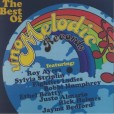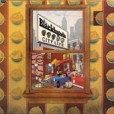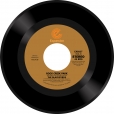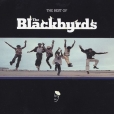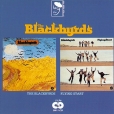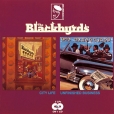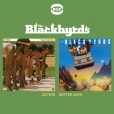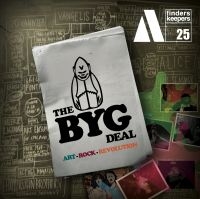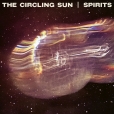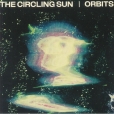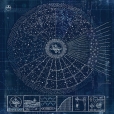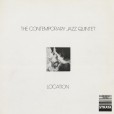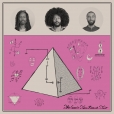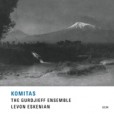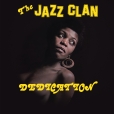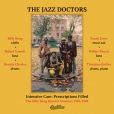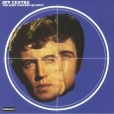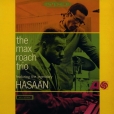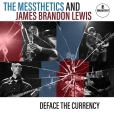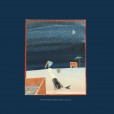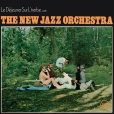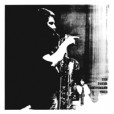Your basket is empty

Wonderful third album, from 1975, with the almighty jazz-funk masterpiece Rock Creek Park and the get-down-and-party murder of Happy Music (as rinsed by Kool Herc and a cast of millions). Takes your troubles off your mind.
‘Jazz Dispensary Top Shelf Series.’
Brothers Nkululelo and Siyabonga Mthembu reworkimg the music of Mongezi Feza, Johnny Dyani, the Malopoets, Batsumi, and Philip Tabane.
Old wisdom in new voices, new wisdom in old voices. Tolika Mtoliki, ‘Interpret Interpreter’.
“Just brilliant,” says Gilles.
Fresh homage to Pharoah, Alice, Ra, and co, from an all-star Kiwi line-up.
‘Each instrument seems to be in orbit around the concept of symbiotic synergy, and everyone is given equal space to shine: from a psychedelic Korg, to a delirious saxophone or the gentle ripples of a harp. There’s a huge array of keyboards, with a standout acoustic piano solo by Guy Harrison on Plume. The wind section delivers ecstatic saxophone riffs, futtering flutes and solid horn choruses throughout. Percussion, vibraphone and acoustic bass lay the foundations. A full choir performs arrangements by Matt Hunter.’
‘All is Sound could not be a more apt title for this,’ says Mississippi. ‘Through saxophone, cello, piano, and flutes The Cosmic Tones Research Trio created a truly beautiful record. All is Sound breaks new ground. At its heart, it’s healing/meditation music, but the Gospel and Blues roots are in there too…as well as hints of forward-looking Spiritual jazz.
‘Delicate, profound melodies create peaceful, immersive soundscapes, which the group develops through their combined background in acoustic ecology, sound meditation, mindfulness, and active community involvement.
‘Following the steps of musicians such as Sun Ra, Alice Coltrane, and Pharoah Sanders, The Cosmic Tones Research Trio delivers music that is both restorative and sonically rich—each tone falling into a perfect place, as if by magic.
‘As sincere a record as you could ever hope for. Music is indeed the healing force of the universe.’
‘Music, its forms and rituals, has the power to bring us close to distant civilizations. Armenia offers a special case: a sacred culture that was preserved and presented at its fullest flowering through the work of one man, the scholar-monk Soghomon Soghomonian, known under his religious name as Komitas.’
Duduk, blul, santur, tar, saz, dap, kamancha, kanon, oud…
‘One of the best, rarest and most sought after South African recordings of the early 1970s, available again for the first time since its original South African release — the tough, jubilantly swinging township groove of The Jazz Clan’s 1973 debut LP, Dedication. It captures the acoustic jazz sound of the early 1970s in its pomp — a handful of tightly wound songs jostling for space, blending uptempo soul-jazz sensibilities with Latin influences and pronounced township jazz accents, the latter especially audible in Dimpie Tshabalala’s piano vamps, Jeff Mpete’s pattering hi-hat emphases, and the unmistakably South African swagger and dip of the horns on cuts like Rabothata. It is music on the brink of a transition, looking ahead but still dedicated to the sound of the golden years, and it could have been made nowhere else on earth but in Soweto.’
Frank Lowe, Billy Bang, Rafael Garrett, and the great, unsung drummer Dennis Charles, in 1983.
Book-ended by Jackie Mac’s Little Melonae and Ornette’s Lonely Woman; plus compositions by Bang and Lowe, Rashied Ali and Butch Morris.
Revered British jazz from 1969; the pianist leading a quartet featuring Harold McNair.
Originally out in 1969 on the Deram imprint which Decca set up for prog, new wave folk, and psych, Off Centre is obligingly eclectic. Cameron’s background in library and soundtrack music is opened up to the spirit of Roland Kirk. Best of several tasty modal numbers, the closer Troublemaker is a testifying rug-cutter, with a gritty flute solo by McNair.
Remastered at Abbey Road using the original tapes. New sleeve notes incorporate a recent interview with Cameron.
Though music journalists made a big deal recently about the release of a 1965 rehearsal tape by Derek Bailey’s Joseph Holbrooke trio with Gavin Bryars and Tony Oxley, those early efforts were mere tentative steps along a cliff edge wearing a line safely attached to Coltrane. There’s still a whiff of jazz to Bailey and Parker’s work with the Spontaneous Music Ensemble up to and including 1968’s Karyobin.
But with the addition of Jamie Muir — the first great free improvising percussionist who didn’t start out as a jazz drummer — and the way-leftfield electronics of Hugh Davies, the MIC leapt right off that cliff.
These six tracks — tight, electric, pointillistic, brilliant, uncompromising and exhilarating — sound like nothing else that came before.
In a word, seminal.
Neil Ardley, Jack Bruce, Jon Hiseman, Dave Gelly, Jim Philip, Dick Heckstall-Smith, Barbara Thompson, Derek Wadsworth, John Mumford, Michael Gibbs, Tony Russell, Derek Watkins, Harry Beckett, Henry Lowther, Ian Carr, George Smith, Frank Ricotti…
‘The range, invention and depth evident on Le Dejeuner Sur L’Herbe outstrips most large ensemble jazz albums of the time; at times muscular and powerful, at others delicate and sensitive, the interplay of the musicians, arrangements and compositions make for a stand-out recording that bristles with confidence and energy.’
